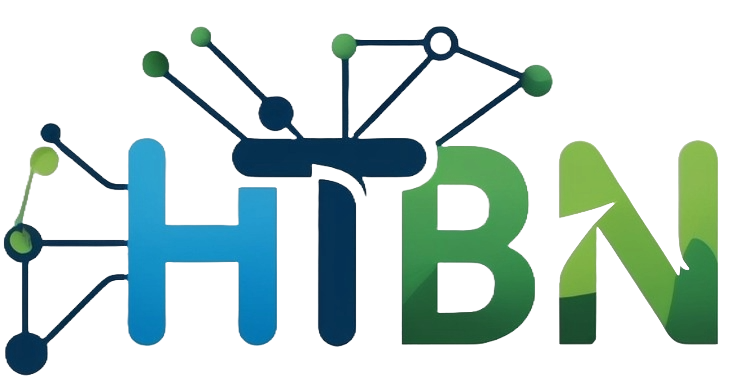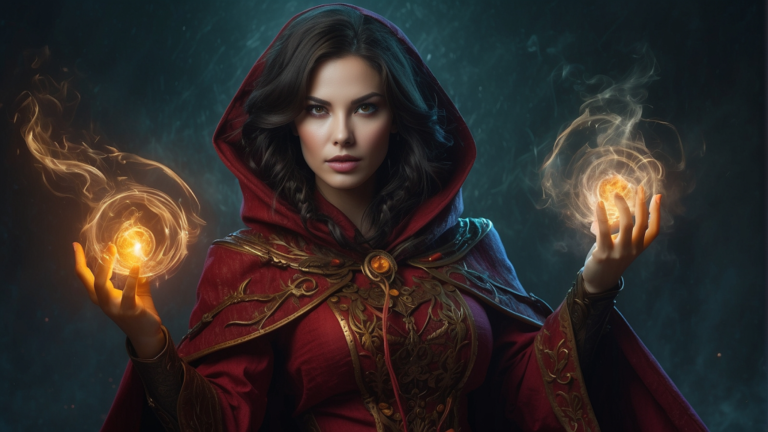The Importance of a Good Warlock Name
In the realm of tabletop and digital role-playing games (RPGs), a compelling character name plays a pivotal role in shaping the player’s experience. Warlock names, in particular, hold significant importance as they encapsulate the essence of the character’s persona, backstory, and magical prowess. A well-crafted name can serve as a window into the character’s history, allowing players to create a deeper connection and enhance their immersion in the game’s narrative.
Choosing a name for a warlock requires careful consideration of various elements. For instance, the name might reflect the character’s origins, such as their upbringing in a mystical or treacherous environment. Names can evoke imagery associated with dark arts or otherworldly dimensions, compelling players and other participants in the game to form specific expectations about the character’s abilities and motivations. This aspect of branding through naming fosters a unique identity that can enrich the overall storytelling experience.
Moreover, a warlock’s name can influence the interactions within the gaming environment. It can set the tone for how other players and NPCs (non-player characters) perceive the character. For example, a name that suggests a connection to forbidden knowledge may lead to increased suspicion or intrigue from allies and adversaries alike. It serves as an anchor for the character’s behaviors, decisions, and how they are received in the collaborative narrative of an RPG.
In conclusion, selecting an appropriate and imaginative name for a warlock is essential, as it serves not just as a label but as a reflection of the character’s identity. A thoughtfully chosen name can significantly enhance player engagement and contribute to a more enriched storytelling experience, adding layers of depth to the warlock’s journey through enchanted realms.
Sources of Inspiration for Warlock Names
Creating captivating warlock names requires a deep dive into various realms of inspiration, ranging from history to literature and beyond. Historical references can serve as excellent foundations for naming. For instance, names derived from ancient figures such as Merlin or Morgana evoke a sense of mystique and power. Similarly, diving into the world of mythology can unveil a plethora of options. Characters from mythology—such as Hecate, the Greek goddess of magic, or Loki, the Norse trickster—provide rich sources of inspiration that resonate with the connotations of a warlock identity.
Fantasy literature is another wellspring of creativity. Authors such as J.R.R. Tolkien and J.K. Rowling have created unique names that embody the magical essence of their characters. For example, the name “Severus” from Harry Potter carries an air of dark mystery, fitting for a warlock. Exploring literature allows for the extraction of phonetic elements or combining syllables from various names to bring new, original warlock names to life.
Additionally, language roots can play a significant role in crafting unique identities. Latin, Gaelic, and Old English are filled with terms that resonate with the supernatural. For instance, the Latin word “magus,” meaning magician, can be an excellent starting point for creating names like “Magorian.” Likewise, roots in Gaelic could inspire names such as “Aisling,” which translates to a vision or dream—an appropriate nod to a warlock’s ability to conjure illusions or manipulate reality.
Finally, combining sounds or syllables can lead to innovative creations that embody the essence of the warlock archetype. Mixing elements from different cultural backgrounds can yield original names that feel organic to the fantasy setting. Ultimately, your imagination is the only limit in crafting warlock names that leave a lasting impression.
Guidelines for Creating Memorable Warlock Names
When crafting a warlock name, it is crucial to consider various elements that can contribute to its impact and memorability. One of the primary aspects to examine is the length of the name. A shorter name can often serve to enhance the character’s mystique, while a longer, more elaborate name may convey a sense of history or nobility. Striking the right balance is vital; names that are overly lengthy or convoluted may become challenging for others to remember or pronounce, ultimately detracting from the character’s allure.
Complexity is another critical factor to consider. Warlock names should resonate with the character’s persona, origins, and magical alignments. Names that include unusual or archaic spellings—such as “Xeldarion” or “Thalrune”—can create an enigmatic feel, yet they should remain pronounceable. Aim for a name that captures the essence of your warlock character without being overly intricate or difficult for other players to vocalize.
The phonetics of a name also play a significant role. Names that are melodious or possess a rhythmic quality can leave a lasting impression. Consider combining soft consonants and smooth vowels to create a name that rolls off the tongue, like “Elowen” or “Caelum.” Furthermore, avoid names that might have unintended connotations or similarities to existing characters or popular terminology in gaming culture, as these might dilute your warlock’s uniqueness.
Incorporating thematic elements tied to your character’s background or abilities can also enhance the overall cohesion of the name. For instance, a warlock specializing in elemental magic might benefit from names that reference fire, ice, or shadow. By infusing these traits into the name, you provide a glimpse into the character’s identity, intriguing players and enhancing engagement.

Ultimately, the process of creating a memorable warlock name should be a blend of creativity and coherence, resulting in a name that resonates with the character’s magical nature and enriches the overall gaming experience.
Examples of Unique Warlock Names
Creating a captivating identity for a warlock character often begins with a unique name. Here are some original warlock names, each accompanied by a brief description to spark your imagination and assist in character development:
Malakar the Shadowmancer: This name evokes images of a dark sorcerer who wields shadows as his primary source of power. Malakar might have a haunted past, once a nobleman who turned to the dark arts out of desperation. His abilities to manipulate light and shadow make him a formidable foe in any confrontation.
Liora Whimsong: A blend of whimsy and enchantment, Liora embodies a warlock who channels the playful powers of nature. She could be seen dancing in the moonlight, communicating with ethereal beings to cast enchanting spells. Her affinity for blossoming gardens and soothing melodies would make her a healing presence in her adventuring party.
Caldric the Infernal: This name suggests a fire-wielding warlock with a connection to the underworld. Caldric may have struck a pact with a powerful demon, granting him the ability to summon flames and create chaos. His relentless pursuit of arcane knowledge could lead him to dangerous secrets, making him a complex character filled with moral dilemmas.
Nyx Nightshade: Intriguing in its sound, this name represents a warlock who specializes in potions and poisonous spells. Nyx might be a master alchemist, crafting brews that could either heal or harm, depending on her whims. Her mysterious and aloof demeanor would make her the subject of local legends.
Thorn Blackwood: A dark forest dweller, Thorn could represent a warlock who draws power from ancient trees and the spirits within. Known for his wisdom and earthy magic, he could act as a protector of the natural world, using his abilities not just for personal gain but for the greater good.
These examples of warlock names illustrate the diverse identities characters can embody, offering inspiration to anyone seeking to create rich backstories and unique personalities in their role-playing games or stories.

